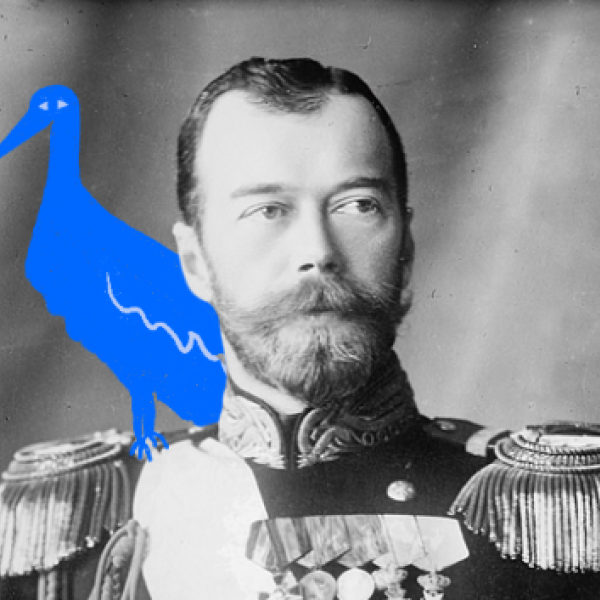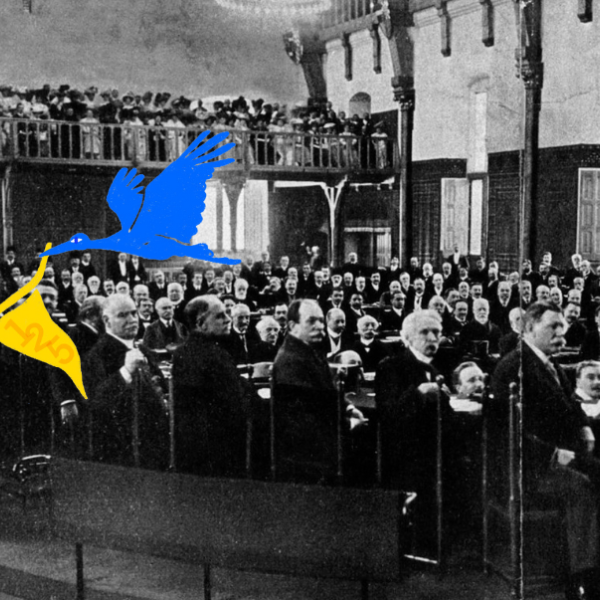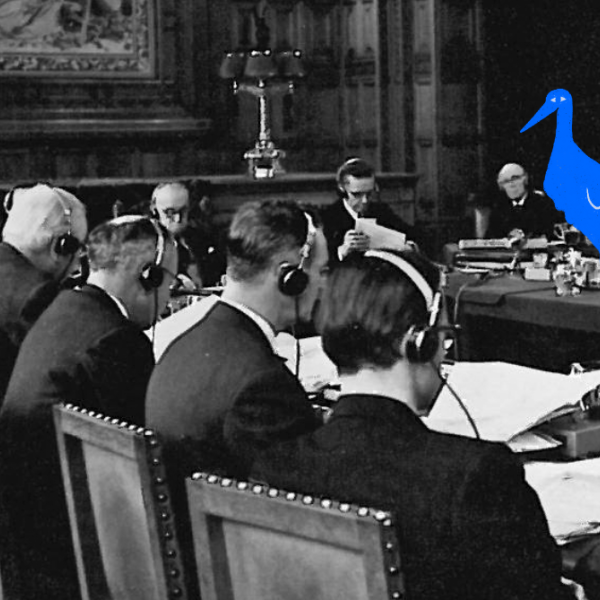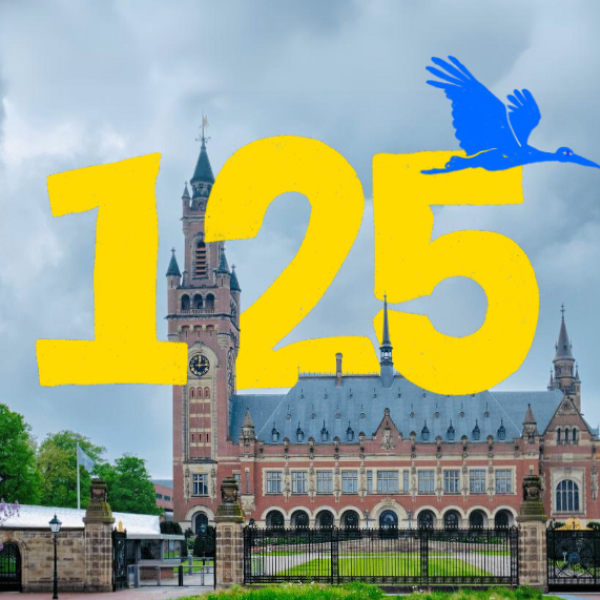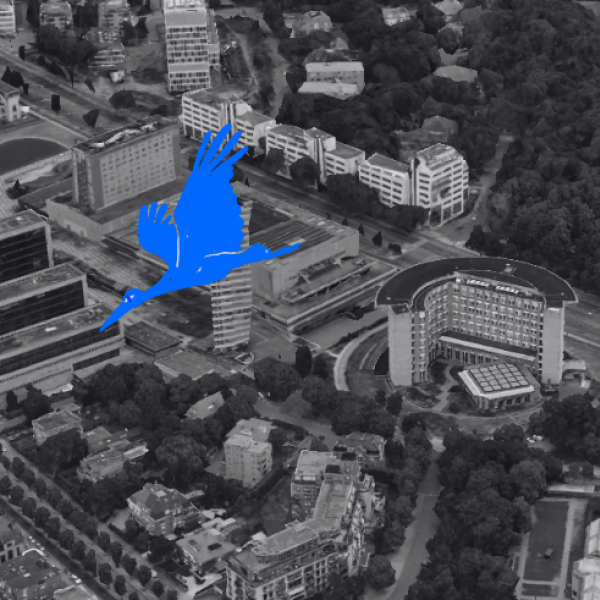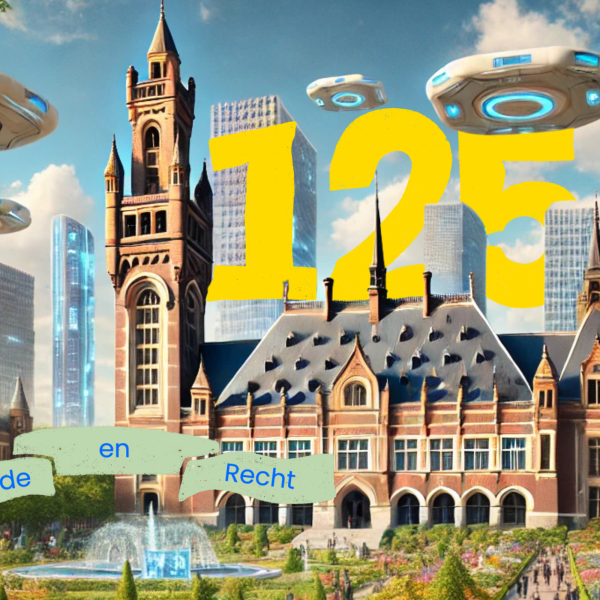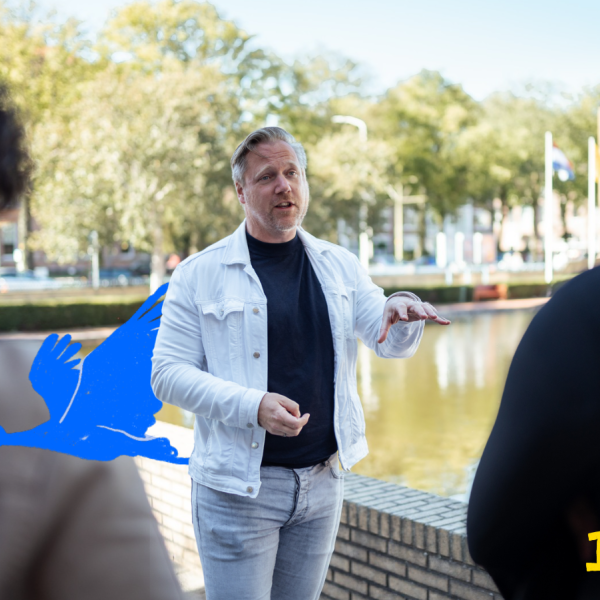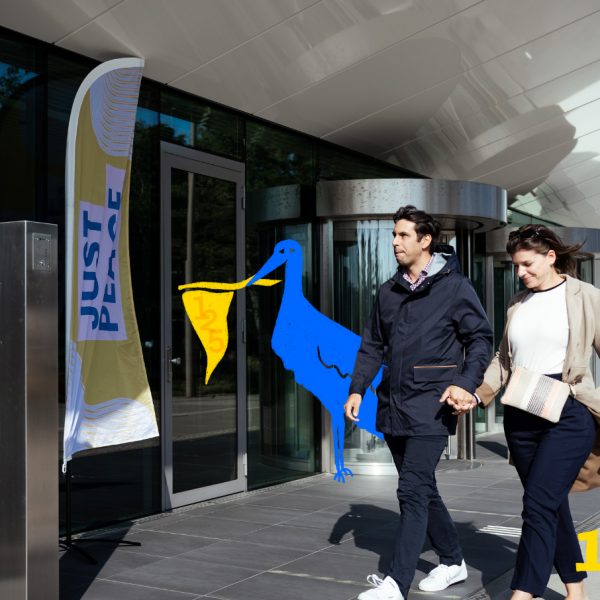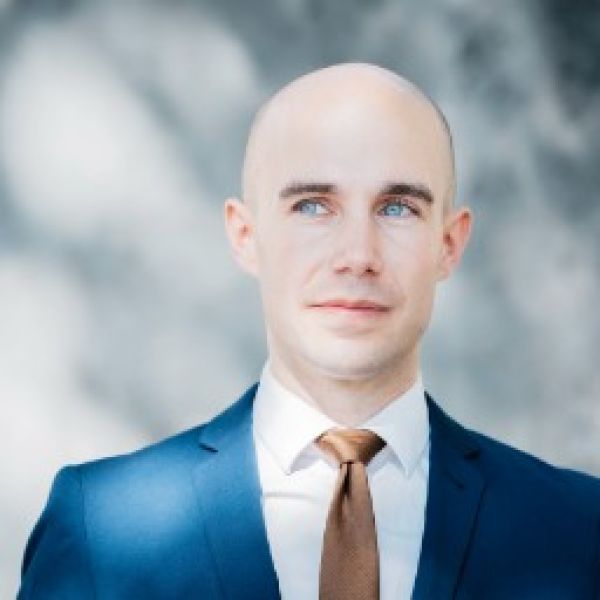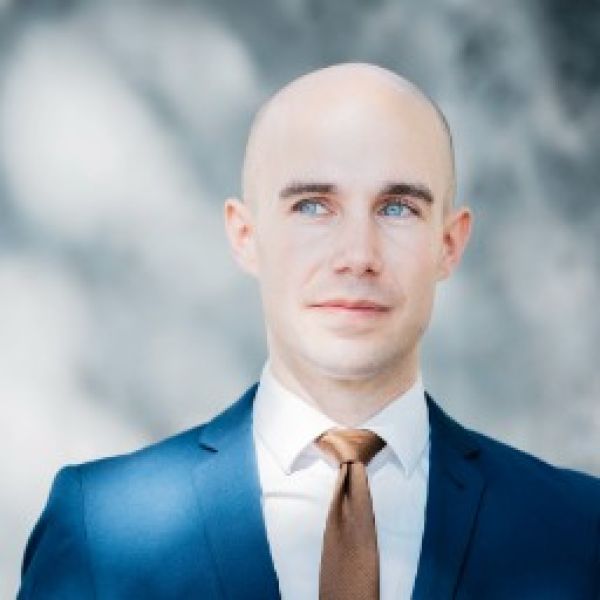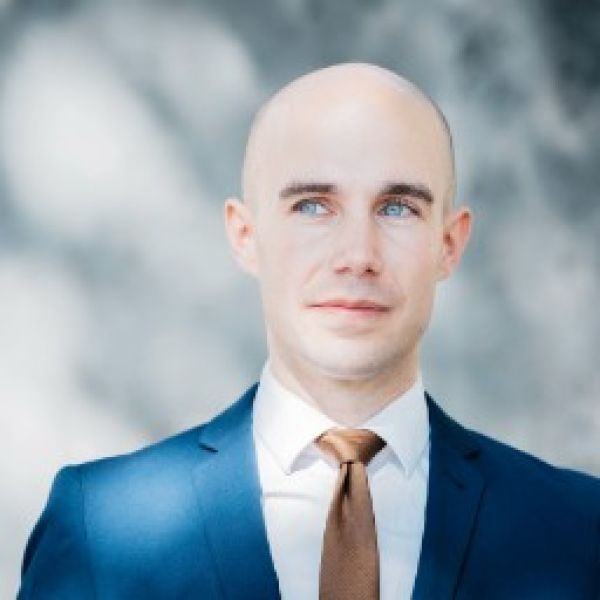The Dream of The Hague: How the City Became a Beacon of International Law
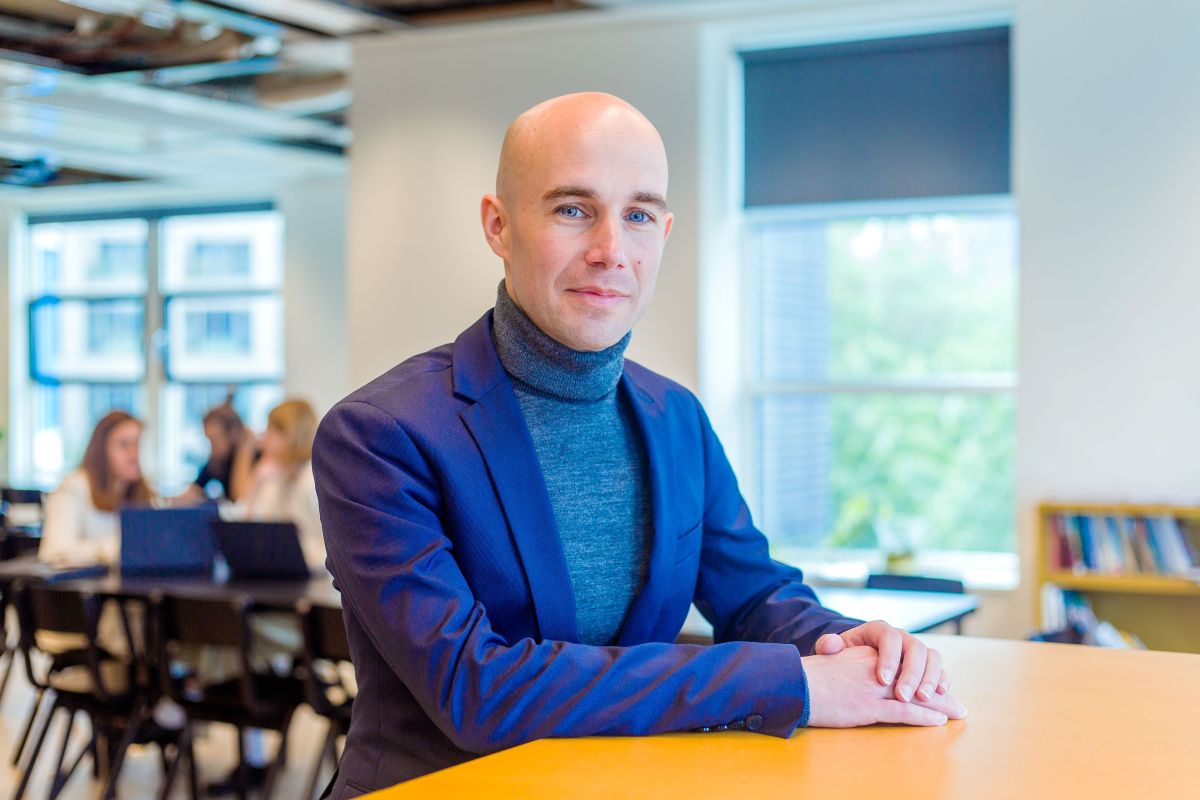
Political scientist, lawyer and writer Benjamin Duerr lacked an accessible book on how The Hague came to be the world-famous City of Peace and Justice. With his book “De Droom van Den Haag” (The Dream of The Hague), Duerr solved his own problem.
Text and photography by Sacha Celine Verheij
Last week Tuesday (21 May 2024) the new book, ‘De Droom van Den Haag’ or the Dream of The Hague was released. What is it about?
In the book I tell the ever-important story about the Hague Peace Conferences of 1899 and 1907. It marked the beginning of a new era for The Hague: it became the City of Peace and Justice. From the perspective of four key people present at the conference I give an insight into how, 125 years ago, The Hague emerged as a beacon of international law.
“If you want to broaden your perspective and learn more about how international law affects your life, my book is the right place for you.”
There are a lot of bubbles. In this sense, the international justice community can also be seen as a bubble. You say that you hope that the right people outside these bubbles will read your book. Why?
For me it is about increasing engagement of people with global issues, this is how the book can contribute to society. The book is meant for the wider public, who are less informed about international law in The Hague. Therefore, I have chosen to write from the personal perspective of four people. They show how individuals can contribute to developing a more peaceful world. Their work still impacts our lives to this day.
What do you wish to achieve with your book?
With this book I hope to stimulate public conversation surrounding international law in a informative and inspiring manner. I want to kickstart the process of discussing the role we as the Netherlands plays at an international level. What role can The Hague play on the world stage? Which contributions can the city provide in the effort to better the world? This is what we need to speak about together, therefore as citizens we need to get actively involved. Especially in the current atmosphere of increasing international tensions.
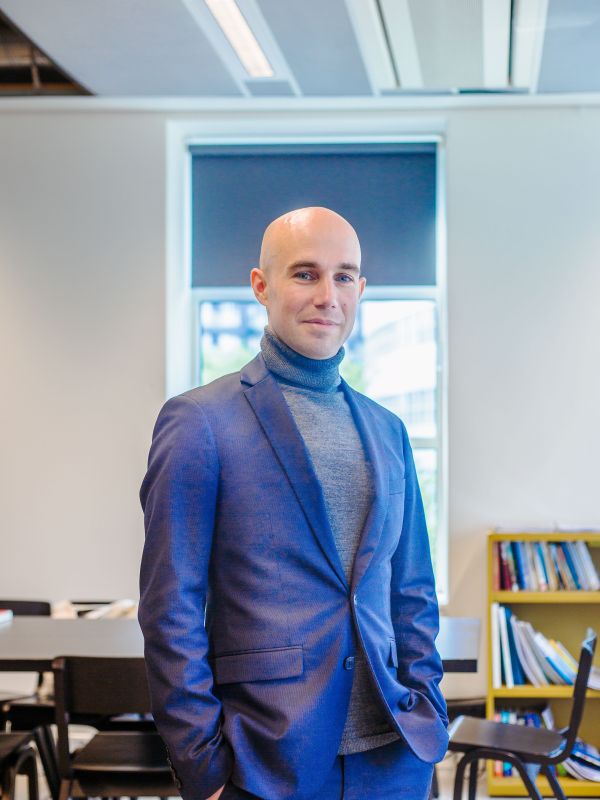
“We are currently at a difficult point, I do not find this a reason to stop. In fact, it is the reason you need to use all your energy to move forward.”
How do you continue to stay hopeful in this time where human rights are threatened, the trust in politics is waning and polarization is on the rise?
The hope that a better world is possible has disappeared from public debate, it appears. This, in fact, motivates me to continue. I compare it to running, sometimes I realise that it is easier and other times it is more difficult. We are now in an era that it’s difficult, I think that’s no reason to stop. It is precisely now that we need to put in all the energy to move forward.
“Actually, the situation today is more comparable to then than we think.”
Especially now, in the times of increasing armaments and new wars, The Hague plays an important role to still move forward. In what ways can The Hague and your work fulfill this role?
Actually, today’s situation is more comparable to then than we think. At the end of the nineteenth century there were also international tensions, an arms race and the threat of wars. There was hardly any mutual trust and little cooperation. Even now, The Hague can bring countries together, offer an alternative to war and deploy the moral strength of the City of Peace and Justice.
What do you mean by that?
The Peace Conferences brought together diplomats, lawyers and activists in The Hague to stop the threat. Treaties were worked out as peaceful solutions to conflicts. The idea that you no longer have to resolve a conflict between two countries through war, but with an alternative, took shape here: mediation, also called arbitration. Thus, the Permanent Court of Arbitration as an independent institution came into being in 1899. Such institutions can and should be used again today.
“Because of the new treaty, landmines are hardly ever used anymore. That is a concrete example of how a treaty has a direct impact on people in war zones.”
To give our readers a clear picture of the impact of the Hague Peace Conferences, can you tell us what has been achieved in the past 125 years?
One of the treaties made in The Hague at the time was the banning of sea mines. Based on these agreements, landmines were banned about 25 years ago. This is a terrible weapon; it sees no distinction between military and civilians. Because of the new treaty, landmines are hardly ever used anymore. That is a concrete example of how a treaty has a direct impact on people in war zones. Even organizations such as the United Nations or the International Court of Justice go back to ideas developed in The Hague.
Duerr concludes the interview by calling on everyone to have conversations about what we can do for peace and justice internationally. Just as ideas about, say, climate change is discussed with citizens before government, Duerr believes we can do the same around international engagement.
The book (“De Droom van Den Haag: The Haagse Vredes conferenties en het ontstaan van een nieuwe wereldorde” – “The Dream of The Hague: The Hague Peace Conferences and the emergence of a new world order”) is available in all bookstores in the Netherlands. In the coming month, Benjamin Duerr will give book presentations in cooperation with the library. These will take place on June 8, June 12, June 15 and June 20, an overview can be found on our calendar.


